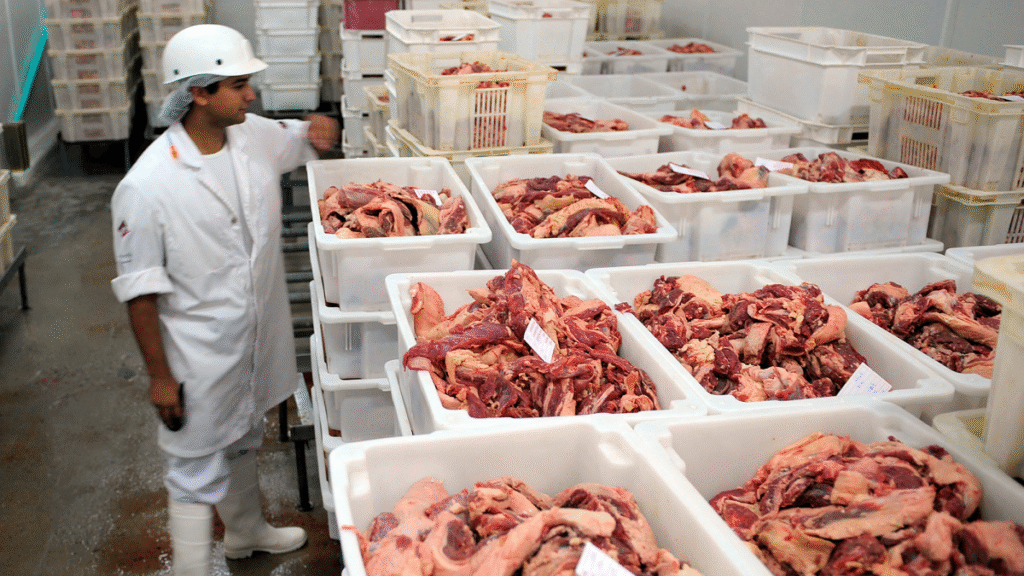Background on Marfrig and BRF
Marfrig and BRF, two leading players in the global meat industry, have received shareholder approval for their merger under the new name MBRF. However, this decision still requires final approval from Brazil’s competition regulator, the Conselho Administrativo de Defesa Econômica (CADE).
Brazil is the world’s largest exporter of beef and chicken, with one of the highest per capita consumption rates globally. The combined entity MBRF, with operations in 117 countries and 130,000 employees, projects an annual production of eight million tonnes.
Details of the Merger
Marfrig, which already held nearly 60% of BRF’s capital, will now fully incorporate BRF’s shares following the shareholder approval.
“Both companies remain confident about closing the transaction, which still requires final approval from CADE,” stated Marfrig and BRF in a joint communication.
Meanwhile, CADE is reviewing a complaint filed by competitor Minerva. Minerva argues that if the merger is approved, Saudi Arabian investment fund SALIC might gain a dominant position in the market through its stake in MBRF and Minerva itself.
Impact on the Meat Industry
Should the merger be approved, MBRF would become one of the largest companies in the global meat industry, trailing only behind JBS from Brazil, and Cargill and Tyson Foods from the United States, according to company balances.
Marfrig and BRF are among the Brazilian companies with strong standards for monitoring their direct cattle suppliers to prevent deforestation in the Amazon, as per the Radar Verde study based on 2024 data. However, like other industry players, they currently don’t ensure complete traceability of cattle heads.
“If the slaughterhouse only monitors fattened cattle, it’s highly likely that it contributes to Amazon deforestation, which is more concentrated in breeding and rearing farms indirectly supplying the slaughterhouses,” explained Paulo Barreto, an researcher at the Institute of Man and Amazonian Environment, which organizes Radar Verde.
The Amazon rainforest, home to 43% of Brazil’s beef cattle according to the Brazilian Institute of Geography and Statistics, is crucial for combating climate change. Its vegetation absorbs greenhouse gases causing global warming.
Key Questions and Answers
- What is the merger about? Shareholders of Brazilian meat industry giants Marfrig and BRF have approved merging their operations under the new name MBRF. The deal awaits final approval from Brazil’s competition regulator, CADE.
- Why is this merger significant? The combined entity MBRF would be one of the largest in the global meat industry, trailing only behind JBS from Brazil and Cargill and Tyson Foods from the US.
- What concerns does Minerva raise? Minerva, a competitor in the meat market, argues that the merger could allow Saudi Arabian investment fund SALIC to gain a dominant position in the market.
- How does this merger affect deforestation in the Amazon? While Marfrig and BRF have strong supplier monitoring standards, they—along with other industry players—currently lack complete traceability of cattle. The Amazon rainforest’s preservation is vital for combating climate change, as its vegetation absorbs greenhouse gases causing global warming.






